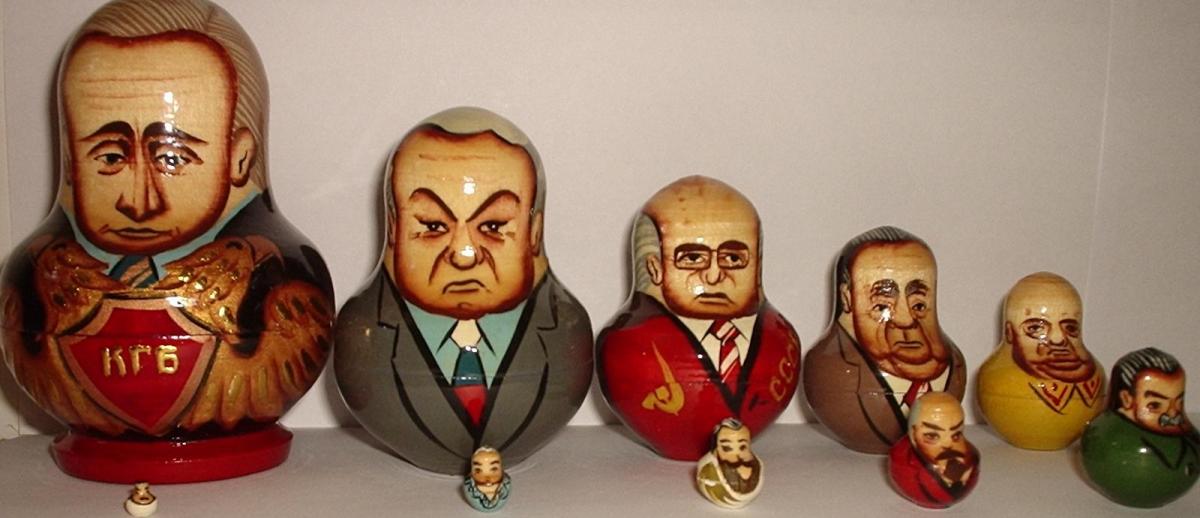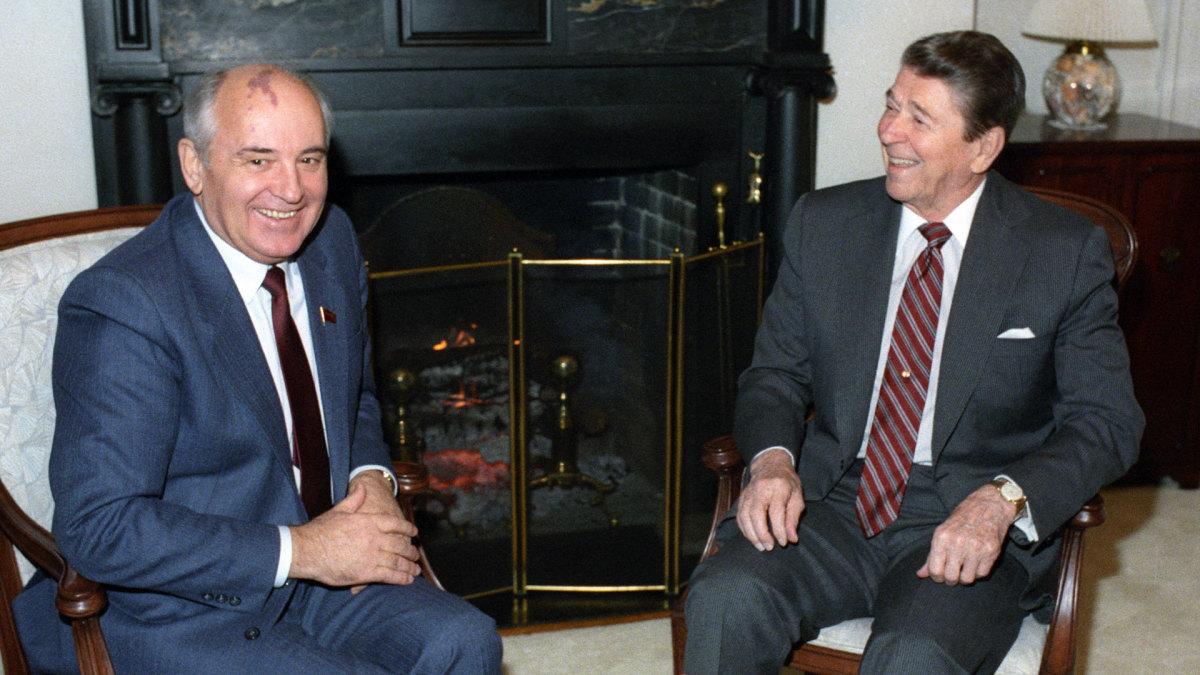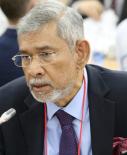Russia’s Way in the World: from Yesterday to Tomorrow
archive


(Photo: Brandt Luke Zorn/Wikimedia)
Russia’s Way in the World: from Yesterday to Tomorrow
In the postwar period, Moscow was never a greater center of soft power than during the first years of the Gorbachev term, which is something I witnessed (and commented upon in a Sri Lankan newspaper) at the World Festival of Youth and Students in the summer of 1985. By 1987, however, Fidel Castro was already prophesying that “if we awake one morning and hear that the Soviet Union has disappeared, we would not be surprised.”
What happened? Originally the Gorbachev project was a reformed, more open socialism, and remained so even until 1991 when its popularity was confirmed in a nationwide referendum—an event that has been almost forgotten by history. What is inexplicable is that the project for reformed socialism did not establish its global alliances with a reformed and reunified worldwide left, which was perfectly possible and on display at the World Festival of Youth and Students in 1985. Instead it did the exact opposite.
At the start of the 1990s a new path was possible for Russia and the world,1 through a renovated and reunited Left or a new Center-Left. The old Popular Front could be revised and extended. But Russia, the most exciting place attracting the most attention in the world at that time, chose as its main partners not the social democrats, socialists, and leftists the world over—including those in Europe, which would have been the path to a Common European Home, if such a path was ever possible—but rather the Gorbachev government allied itself with conservatives in the US and UK, Reagan and Thatcher.
It was from these sources and their liberal replacements that the international, strategic, and economic signals and ideologies came, totally derailing the Gorbachev experiment, shifting its own ideologues from social democrats to Western or pro-Western liberals, and finally unleashing social forces to its right. This displacement of the experiment ushered in the 1990s.
How is it possible that even if one were to partner with the coldest of Cold Warriors with a view to conversion through convergence and transcendence, one would not confirm one’s first and foundational alliance with like-minded leftists, socialists, progressives, and social democrats? What was the logic, the rationale?
The seeds of this confusion (ideological, philosophical, and political) originated in the late 1980s and resulted in the capitulation of the 1990s. Far from “depriving the West of an enemy image,” Gorbachev’s well-intentioned but poorly thought-through policies, deprived Russia itself of strategic “vision.” The “long Nineties” therefore began in the late 1980s, removing the restraints, restrictions, and roadblocks to Western military expansionism, and disrupting the global equilibrium. It has brought the world to the brink of war and is described in Moscow today as a “pre-war” situation.
But the Long Nineties has roots even farther back, in the late 1950s. Though the Gorbachevians dubbed their ideas “New Thinking” as distinct from the “old thinking” of critics such as Ligachev, not to mention Nina Andreyeva, the so-called New Thinking was, in fact, the older or oldest thinking, dating back to the 20th Congress and its prolonged afterlife even in the post-Khrushchev period.
II.
But are we sure why it started and how it prevailed over time? The delusion was that the strategic goal, the very telos, of Russian policy should be the search for world peace through negotiations with the United States, over and above and even to the detriment of all other factors and considerations. It is not that such negotiations were in and of themselves wrong. What was unwise was that they were not seen as tactical but rather as strategic; not seen as buying time and space and exploiting contradictions within the camp of the adversary, as Lenin and Stalin had perceived and practiced it, but as the main strategic path for Russia in the world.
Like a matryoshka doll, this strategy contained within itself several other delusions. The first was that the Western signatory to such pacts would not extricate itself from them or just tear them up. Understanding this only required an awareness of the imperialist powers’ perfidious history, ranging from broken treaties with the native Americans to the murder of Sandino in 1932 and the open violation of the 1954 Geneva Peace accords in the case of Vietnam. Of course, the West was consistent with its own essential character: When it perceived that its interests, be they systemic or merely sectional, were no longer served, it merely reneged on agreements.
What is inexplicable is that the project for reformed socialism did not establish its global alliances with a reformed and reunified worldwide left.
The next matryoshka doll was based on the assumption that the strength of socialism and the world correlation of forces was such that imperialism would not dare renege on its commitments and become openly warlike. From this assumption, Russia went on to cut back on its own military strength and abandon the very policies that had made it a leading player in international affairs.
There were warnings. Molotov kept giving them, but he was laughed at as a diehard. From 1956, and especially in the so-called Great Debate, the Open Polemics of 1960-1963, and most especially in the 1963 Proposal on the General Line of the World Communist Movement, the Chinese Communists kept warning angrily about the intrinsically aggressive, predatory character of imperialism which could not be changed through compromise and negotiation. On this question their pessimism seems to have been proven more correct than the optimists.
The next matryoshka doll was the view that the USSR could go it alone without its allies within the socialist camp—even if there was no consensus with China, in the teeth of objections from China, and in the face of active antipathy from China.2 Within this matryoshka doll was another: the notion that the search for negotiations and pacts with the USA was strategically more important than, and on a qualitatively superior plane to, the relationship with China.3 While there were partial course corrections along the way, starting with the ouster of Khrushchev following the Cuban Missile Crisis, the dominant though not always permanent or consistent paradigm in Russia’s external policy remained, until the Putin presidency, that of privileging the relationship with the US over that with either the East or the Global South. As history has shown, the US exploited this mistake to the full, played one against the other, and is now on the offensive against both.

Mikhail Gorbachev meets with Ronald Reagan on visit to the United States for the 43rd session of the United Nations General Assembly in 1988. (Source: Getty Images)
The last matryoshka doll was the argument or perspective that domestic relaxation required the relaxation of tensions externally, in relations with the West, and that this relaxation went beyond the domain of foreign policy into that of strategic and security policy. The political history of the West has proven that it is capable of pairing the most liberal internal policies with the most aggressive external military ones.4 The West has also shown that external militarism and expansionism can go hand in hand with a partial relaxation of foreign policy. But in the Soviet Union under Khrushchev and Gorbachev, and in Russia under Yeltsin, domestic relaxation and external relaxation of strategic and security concerns were seen as necessary corollaries.
III.
Those who attribute the present state of international relations, often described as that of a Cold War, to the ideologies and/or personalities of Presidents Trump and Putin or the nature of their administrations, miss the whole point or cover it up intentionally. The point is that however different from the present administrations in Washington and Moscow their predecessors were, and however friendly the atmosphere of the equation was, Western drives have remained consistent unless thwarted by Russian conduct. The basic policy objective of the United States has been, and remains, the expansion of its global power—especially military power—and this entails the weakening of the Russian state, and its military power.
So long as the Russian state has the capacity to be a counterweight, it is an enemy. Yet it was not always understood by Russia that the protection of its own basic, even existential, geopolitical and geostrategic interests meant that Russian military power always had to be maintained at a level that, whatever the policy intentions of Russian regimes, Russian power would always constitute an objective deterrent to the US drive for global over-lordship—and would therefore always be perceived as a threat and an enemy.
[H]owever different from the present administrations in Washington and Moscow their predecessors were... Western drives have remained consistent unless thwarted by Russian conduct.
For those who oppose such US global leadership, it is not necessary to imitate the US, but it is necessary to compete: not on all terrains, but absolutely on the terrain of politics. Political competition means that one authentically projects one’s state and one’s political project as an alternative, counter-hegemonic pole of attraction; an alternative rallying point for the mobilization of political forces, state and non-state, across the planet. But to do that, Russia and China must have a universalist—or, more simply, a global—political project, which the USA has and always had. To put it in the language of an earlier period of political history, Russia and China must sustain their role as “the vanguard.” Today, however, this element is lacking: Russia is a strategic defender while China is an economic competitor. Neither is acting as a counter-hegemonic power; neither is offering a genuine alternative.
In summary, the Soviet and post-Soviet chain of erroneous strategic propositions has to be identified as comprising a paradigm or an episteme. If the current challenge of confronting, resisting, and prevailing over the Adversary’s project of global encirclement and unipolar domination is to be successful, it cannot be with the residues of the old paradigm. There has to be an “epistemological rupture” from the old idealistic-utopian thinking and a “leap” forward that synthesizes Realism and Leninism in the form of an elite, vanguard, “Nietzschean-Lenininian” archetype.
_________
This essay is adapted from an article that appeared online at the Russian International Affairs Council in August, 2019.
1. Moscow was at that moment the capital of a “broad church” or an extended family, ranging from reformists to revolutionaries. The great historical split between Communists and Social Democrats was being healed and within the USSR, and in every nation of the so-called “Eastern bloc,” suppressed currents of the Soviet heritage were rehabilitated and resurfacing, for example with regard to Bukharin.
2. China too would later make this mistake in relation to the USSR. By “go it alone” or go it “with” one’s allies but without each other I mean not only in world affairs generally, but more specifically (and much worse) in relations with the US and the West.
3. China would also make this mistake in regard to Soviet Russia a decade or so later.
4. The incumbencies of John F. Kennedy, Jimmy Carter, Bill Clinton, Tony Blair, and Barack Obama have shown this very well.



